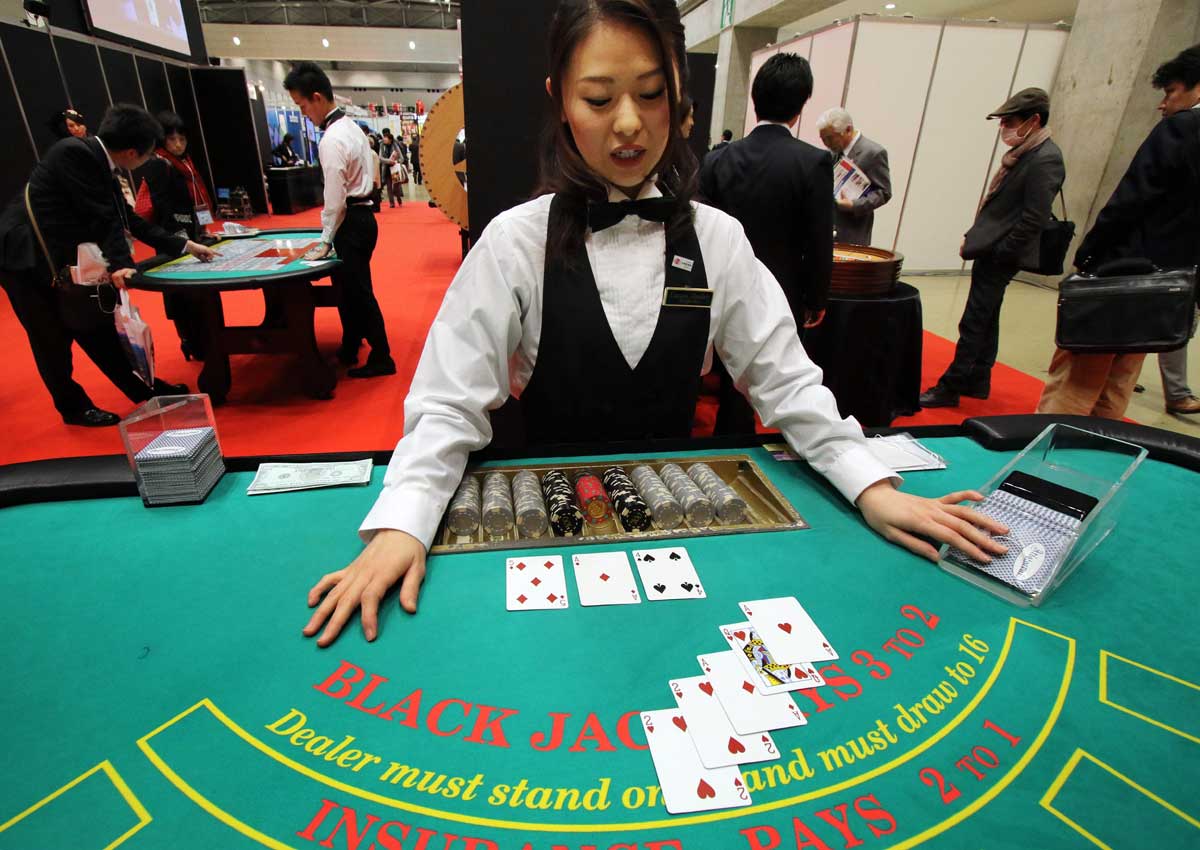Japan’s parliament has just legalized casino gaming even though most Japanese oppose it. Here’s why.
Lawmakers in the upper house sent the bill over its final hurdle early Thursday, even though polls have repeatedly shown more than half of Japanese oppose it, in large part on concerns over the social ills that often go hand-in-hand with gambling.
The bill was the culmination of years of effort, with Prime Minister Shinzo Abe advocating for the measure since taking office in 2012 as part of Abenomics, or Abe’s plan to boost growth in the country’s long-moribund economy.
Allowing casinos as part of integrated resorts will provide a longer-term boost to the economy, even though they’re unlikely to open before 2022, analysts said.
“Immediately, it’s going to provide a buffer for after the Olympics,” which Tokyo will be hosting in 2020, Jesper Koll, CEO of WisdomTree Japan, told CNBC’s “The Rundown” on Wednesday.
“Once the buildings for the Olympics are being built, then the next construction boom is going to be the integrated resorts.”
Others also pointed to the building boom.
“While the government’s intention is probably allowing only one or at max two per city in Japan, these would be very sizeable investments,” noted Richard Huang, a China gaming, lodging and leisure analyst at Nomura, told CNBC’s “Squawk Box” on Wednesday. “We’re talking about multi-billion dollar investments.”
After the construction boom, analysts expected the economy would continue to see a boost from increased tourism, which has been a key goal of Abenomics.
The number of visitors to Japan has already climbed to a record high, rising to 20.1 million in the January-October period, up 23.3 per cent on-year.
Analysts expected that the integrated resorts would help Japan continue to draw tourists.
Countries across Asia have eyed Singapore’s integrated casino-resort model as a template for allowing casino gaming as it can help to attract a larger variety of tourists than merely gamblers.
Martin Schulz, senior economist at Fujitsu Research Institute, pointed to the success of Tokyo Disneyland.
“This is providing really a magnet to international tourism; it is providing a magnet for families to get out.
This is extremely successful,” he told CNBC’s “Street Signs” on Wednesday.
“If this can be extended for a bit more adult entertainment, this is where the Abenomics focus is really on right now.”
Estimates of how much the casino gaming will contribute to Japan’s economy vary widely, but the numbers were still large.
CLSA estimated gaming revenue would come in as high as $40 billion a year, while Morgan Stanley forecast a more modest $20 billion.
But that wouldn’t be entirely from foreign tourists to Japan.
“The inbound tourism contribution would definitely be sizable, but a large part should be contributed by locals as well,” Nomura’s Huang noted.
“No one should question the appetite to gamble in Japan considering that there is a pseudo form of gaming that is pachinko, which has been racking up already $20 billion of revenues on an annual basis.”
Pachinko machines are a combination of both pinball and slot machines, popular in Japan since the 1940s.
Players pay for small steel balls to add to the machine.
Some machines are passive, with players watching to see whether the balls land in winning holes and others are more like pinball machines.
Winning plays are paid out as balls. Because gambling for money has been illegal, players usually exchange their winning balls for prizes.
Huang noted that Japan’s home market already has the ingredients for a successful launch of casino gaming: “the population in the country is huge, 130 million people, which possess a lot of wealth as well and very densely populated in major cities.”






